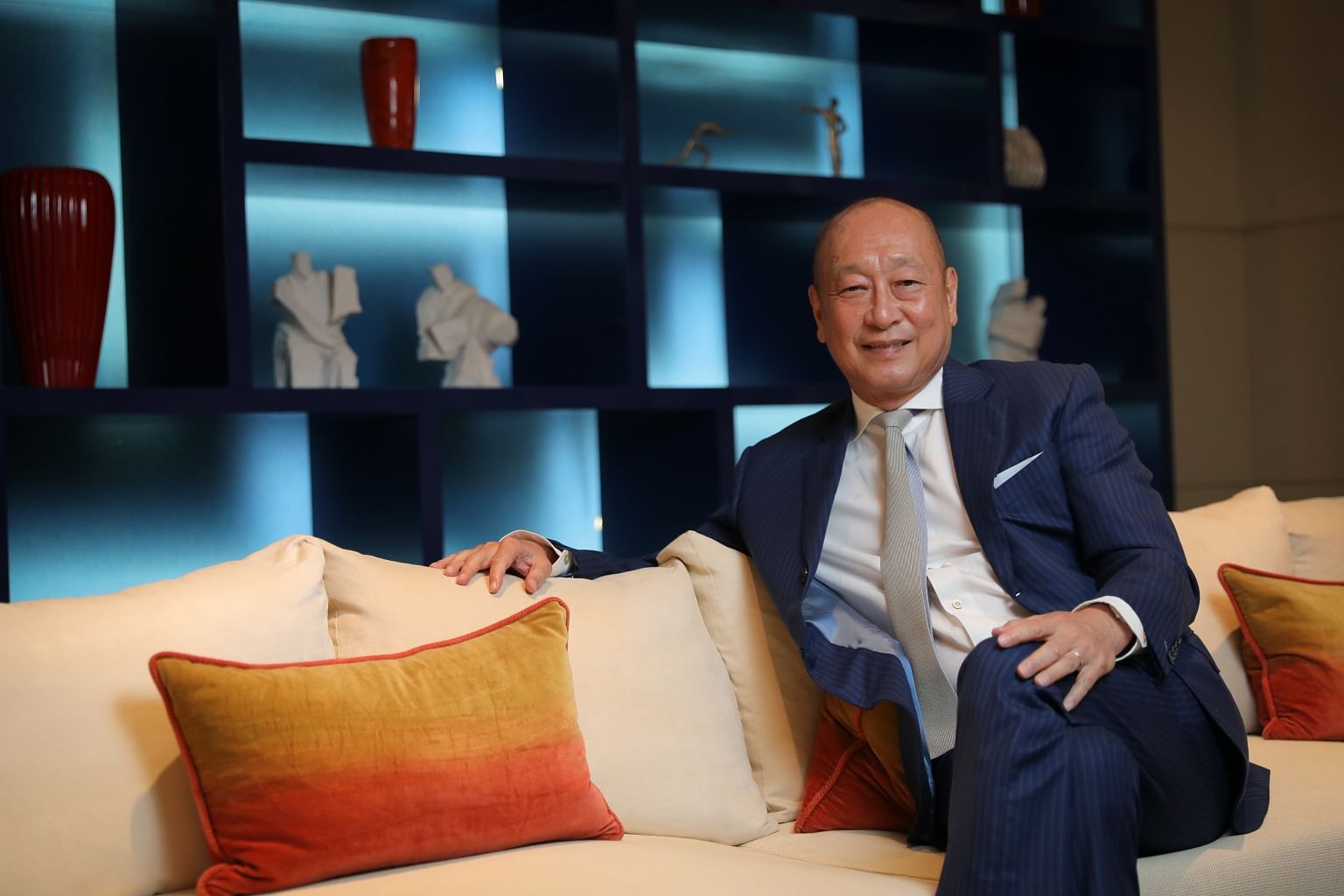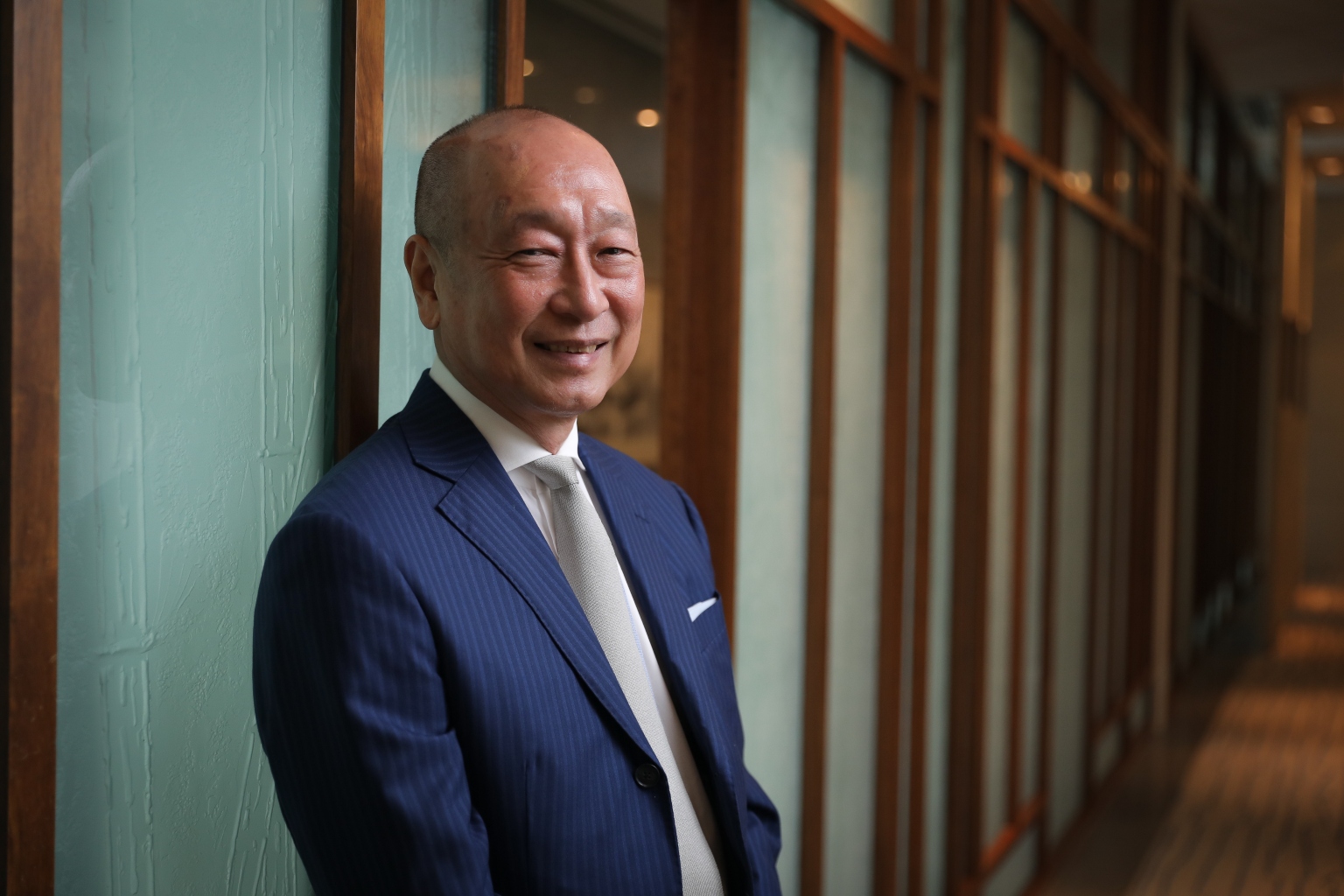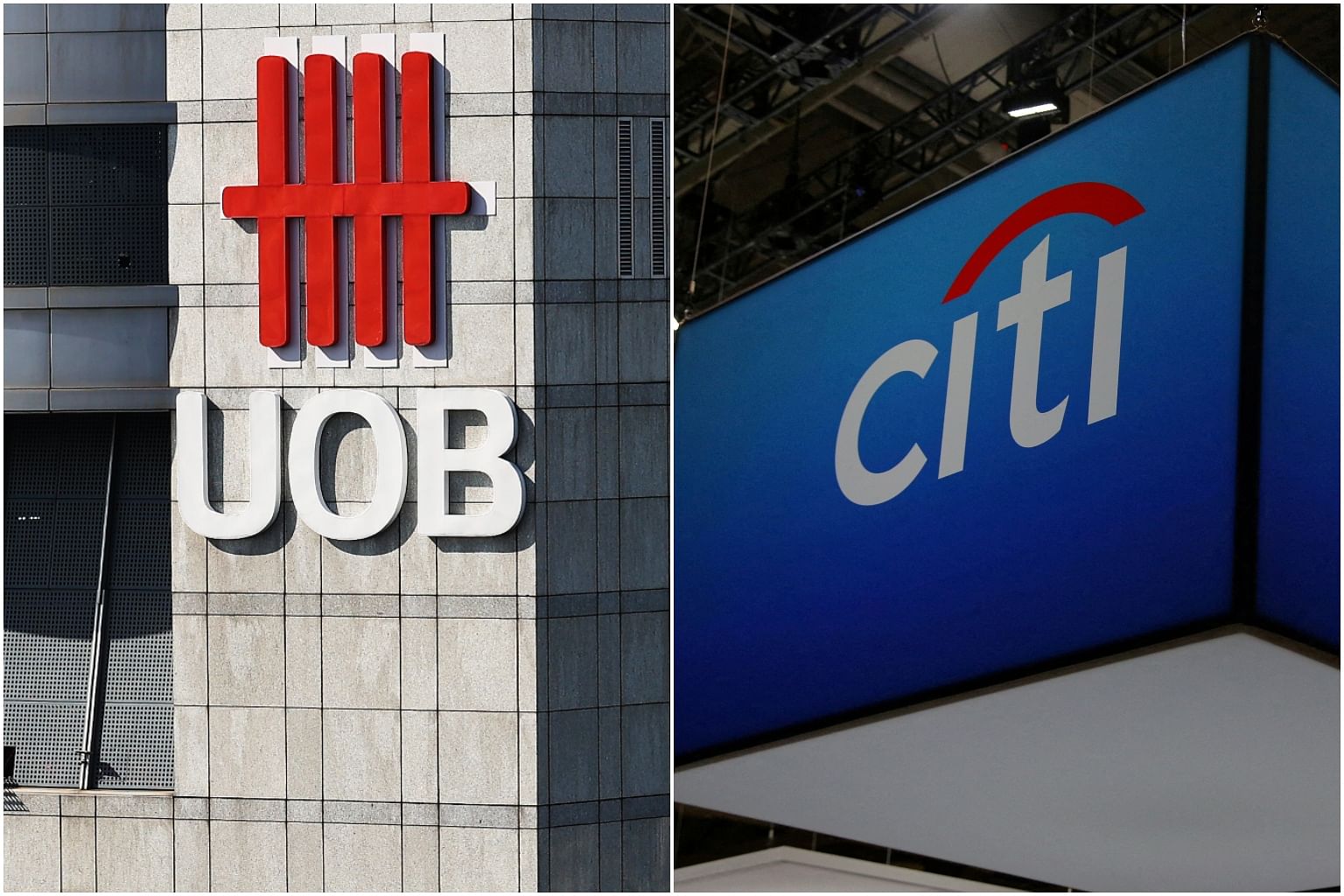In Good Company
If my kids don't want to run the bank, so be it: UOB's Wee Ee Cheong
UOB vice-chairman Wee Ee Cheong was ordered home from the US by his dad Wee Cho Yaw the moment he graduated, but he is prepared to break from tradition and pick a successor from outside
Sign up now: Get ST's newsletters delivered to your inbox

While his father took over eight banks, Mr Wee Ee Cheong is not apologetic that it took him so long to make his own big move.
ST PHOTO: ONG WEE JIN
Follow topic:
For some time now, my children have been pressing me to subscribe to the credit cards offered by United Overseas Bank, extolling their merits and the user-friendliness of the UOB banking app.
I am yet to be persuaded; men are creatures of habit and what's more, there is very little to complain about the service I receive from the bank with which I have maintained my savings account for decades, and whose cards I use.
Nevertheless, this evangelisation on UOB's behalf by my pair of millennials piqued my curiosity. So, when I got the opportunity to have a conversation with UOB's vice-chairman and CEO Wee Ee Cheong, named by The Asian Banker recently as Best Managed Bank and Singapore bank CEO of the Year, respectively, I seized it eagerly.
Fastidiously low profile - whereas his legendary father Wee Cho Yaw, while equally reluctant to seize the limelight, allowed himself the flash of a Rolls-Royce that was often parked in the driveway of UOB Plaza - the younger Wee prefers a Mercedes, and those who know him say he has been in a particularly reflective frame of mind lately.
That shouldn't be a surprise. Even as he has gained a reputation as one of the most astute bankers when it comes to using his balance sheet, his Chinese schooling helping him maintain tight connections to the small and medium-sized businesses that power the East Asian growth story, the industry is in churn as fintech and digibanks sweep in to claim space once dominated by traditional lenders. Regional economies are slowing. Interest rates are rising. Geopolitics is in a ferment.
Within his bank, Mr Wee is grappling with the first big acquisition he has directly supervised - the retail portfolio he bought from Citi in Indonesia, Malaysia, Thailand and Vietnam as the US giant swivelled to focus on wealth management - a move that has helped expand UOB's footprint in these markets and consolidate its position as the biggest foreign bank in Malaysia.
As UOB approaches its centenary in 2035 and himself his 70s, there is also the matter of picking an eventual successor. For sure, the 69-year-old, a former national tennis player, has plenty to think about and he covered some of that in a 90-minute conversation at his cavernous chambers downtown.
"It is a bit of a judgment call," he explains. "My grandfather founded the bank, my father built it up. As a third-generation steward planning to bring the bank to 100 years you ask, 'if I continue to (just) hold on will I lose, or could I lose if I try to be more progressive'. That is the dilemma!"
The Citi deal, which cost nearly $5 billion and was formally announced in January, was hailed by The Asian Banker as a significant move that solidifies UOB as a dominant regional player. As sound as the business proposition may be, such moves come with headaches; internal cultures are different, systems and processes vary.
The last big acquisition UOB made was more than two decades ago, when it bought Overseas Union Bank in the aftermath of the Asian financial crisis and Mr Wee Cho Yaw was at the helm. It was also an in-country purchase and, therefore, less complicated. Citi is a different animal.
"I believe the Citi portfolio will give us a five-year advantage in the customer base we have acquired. It was the perfect opportunity for us. Their portfolio is very seasoned, it is proven," he says. "Banking is about capital and risk management. In a crisis situation, you have the ability to see the quality of the book (of account) and that gave me the confidence to do (Citi). No more acquisitions (for now)."
While his father took over eight banks, including buying one bank that was larger than his own, he is not apologetic that it took him so long to make his own big move.
He says he spent the intervening years after the purchase of OUB building UOB organically, preserving capital and investing nearly $600 million to upgrade and standardise technology across the markets it operates in - its success possibly being the reason my children have warmed so much to it.
However, the OUB merger also led to too much risk being concentrated in its home market of Singapore, hence the need to spread into the region. And in this endeavour, playing on a portfolio basis rather than buying banks outright is the more prudent approach in his mind. Test the market and if things look positive, grow organically. Otherwise, mistakes abroad can transmit to the home base and affect the bank's AA-rating.
Meanwhile, he believes the Asean growth story still has legs although China might see a temporary slowdown. Investments, including from China, continue to flow in and employment is strong - that's helping mortgages to be resilient.
While the buoyant property market - partly a function of outside interest in buying here - "is a good problem to have", he thinks Singapore also ought to watch out for unintended consequences. Some 5 per cent to 10 per cent of HDB dwellers have the aspiration to upgrade and it would be prudent to adjust policy so Singaporeans feel they are not priced out of the private housing market.
"The Government is watching it very carefully and that is the right thing to do."

While the culture fit with Citi has to be worked on, UOB is proceeding on 17 work streams to integrate the portfolio. The merged entity will probably have legal sanction in November and an operational launch next year.
After the one-time costs, the earnings uptake will be good, he says. Citi should help increase income by $1 billion and, all put together, constitute more than 10 per cent of balance sheet size for the regional retail franchise.
"There will be a short-term impact but once that is equalised, return on equity will go up and with the kind of customer base we have, you are talking of nearly 10 million customers combined in the region (projected by 2026). That will boost our business model."
Citigroup had 2.4 million retail customers in the four markets as at June last year, with the consumer business generating income of about $500 million in the first half of 2021.
As for succession, this third-generation leader of his bank seems quite prepared to break with tradition and pick a person from outside his family.
In his case, his father had ordered him back from college in the United States the moment he had graduated. This, he realises, he cannot do with his own Ivy League-educated children, none of whom currently works in the bank.
"Maybe my children are not interested in running the bank, so be it," he says. "They say they have their own passions. As a parent, you want your children to be happy. There is no way you can control them."
Not that he is leaving tomorrow. Mr Wee, who keeps fit through long walks and qigong, does not anticipate leaving before the bank has celebrated its centenary.
What about the current moment - those tiresome quarterly reports that need to be defended?
After a solid 2021, UOB had a middling first-half performance. A 10 per cent dip in first-quarter earnings due to a fall in fee income was followed by a second quarter where it reported net profit of $1.1 billion, up 11 per cent year on year and beating expectations.
Mr Wee says UOB should finish 2022 on a strong note. Credit costs are not a major concern and rising interest rates will benefit the bank.
"Net interest margins will be in our favour because rising interest rates benefit all banks," he says. "Of course, we would like to provide a bit more, just to anticipate things. The last thing we want is to be caught by surprise."

Likewise, UOB has to absorb the acquisition costs as it waits for the integration process with Citi to settle. "Cost is not an issue. If my revenue goes up, my cost to income ratio (CIR) will be good. I believe technology will help us do a lot more things in Asean, and we have a head start there. It is unlike the old days when you had to open physical branches."
The challenge is to control costs in an optimal manner so revenue is not compromised. For instance, in the quest to drop current CIR from 45 per cent to, say, 40 per cent, slashing the branch network would be an obvious gambit. Yet, it will not make sense if customers are seen to suffer; UOB has 51 branches in Singapore.
Meanwhile, UOB is refreshing its brand. He likens it to a large tree changing the colours of the leaves a mite, while maintaining its roots.
After all, quips Mr Wee, you cannot have a sleepy image when "we are taking over a portfolio that never sleeps" - a reference to the "Citi never sleeps" motto.
Of course, it doesn't mean UOB is all set to shed its Chinese feel, which starts with its logo.
"We speak the language, we use chopsticks," says Mr Wee, as he explains why Chinese business people are so comfortable working with his bank.
At the CEO's floor, visitors are served Chinese tea and there's a bonsai tree in sight.
Investors in the bank's stock have seen their share values rise 19 per cent over a five-year timeframe, outperforming cross-street peer OCBC, whose stock has climbed 11 per cent in the period. DBS, run by the Peter Seah-Piyush Gupta duo, is another story of course with 66 per cent growth in share value.
I ask what his legacy would be.
He says it would take a decade after his departure for people to get a full measure of his contributions but it would include setting the culture and building the technology platform.
UOB, he says, has grown its own timber - some even refer to it as University of Banking - and what matters is that whoever succeeds him as CEO has the right values and instincts that balance short-term needs with a long-term perspective about the bank, and its unique culture.
"Every quarter each of us is under certain pressures. But at the back of your mind, if you think long term, you will do the right thing for the organisation. That, to me, is very important and is the kind of legacy I want to share."
I ask what keeps him awake at night."I do sleep soundly," he responds.
Fast facts
The CEO
Mr Wee Ee Cheong joined UOB in 1979 and served as deputy chairman and president of the bank from 2000 to 2007. In April 2007, he was appointed chief executive officer.
Mr Wee is 69 years old.
Educated at The Chinese High School, he has a bachelor's degree in business administration and a master's degree in applied economics - both from American University. He currently chairs the Association of Banks in Singapore.
Mr Wee played tennis for Singapore in his youth, and enjoys long walks. He was awarded a Public Service Star in 2013.
He and his wife are parents of two sons and a daughter.
The bank
United Overseas Bank is South-east Asia's third-largest bank by assets.
It was founded in 1935 as United Chinese Bank by Sarawak businessman Wee Kheng Chiang, and underwent steady expansion under his son, Mr Wee Cho Yaw, father of Mr Wee Ee Cheong.
UOB provides personal financial services, private banking, commercial and corporate banking, investment banking, corporate finance, capital market activities, treasury services, futures broking, asset management, venture capital management, insurance and stockbroking services.
It has 51 branches in Singapore and a network of more than 350 branches in South-east Asia, chiefly in Thailand, Malaysia and Indonesia.
UOB reported net profit of $4.1 billion last year on income of $9.8 billion. The non-performing loan ratio for the year was 1.6 per cent.
It has a market capitalisation of $46 billion.

